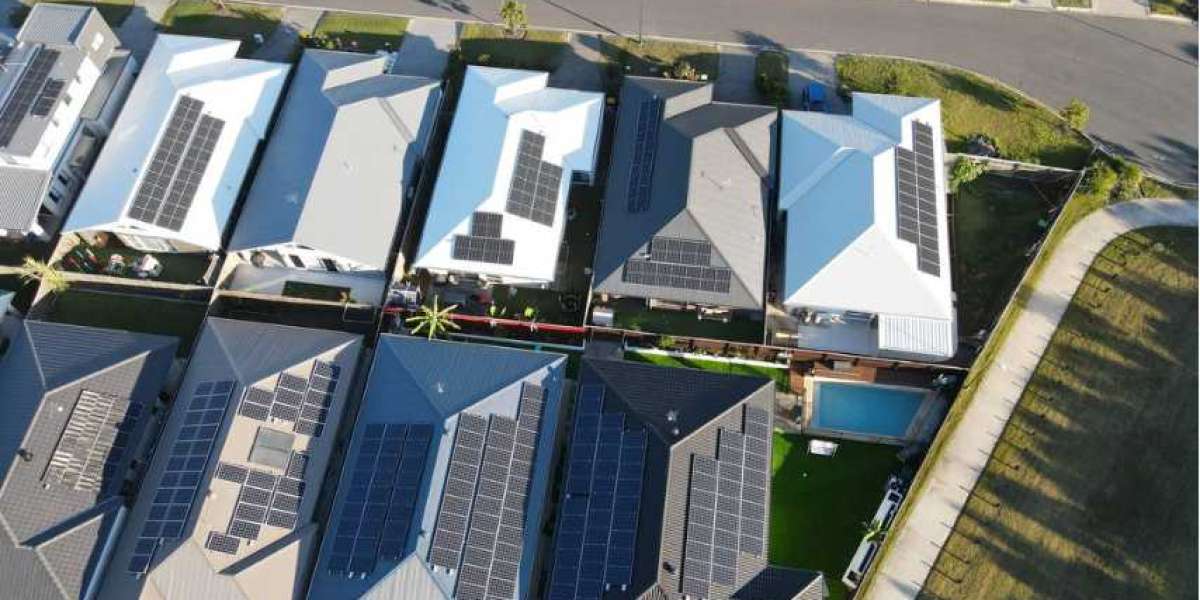The rising cost of electricity, coupled with increasing concerns over environmental sustainability, has prompted many homeowners to consider alternative sources of energy. One of the most effective ways to achieve both financial savings and energy independence is by installing residential solar systems. With solar technology becoming more affordable and efficient, switching to solar energy offers a long-term solution to lowering your electricity bills. But how exactly do residential solar systems save you money? Let’s dive into the financial and environmental benefits of solar energy and how it can transform your home’s energy consumption.
Understanding How Residential Solar Systems Work
At its core, a residential solar system captures sunlight and converts it into electricity using photovoltaic (PV) cells. These panels, typically installed on the roof, absorb sunlight and generate direct current (DC) electricity. An inverter then converts this DC power into alternating current (AC), which is the type of electricity used in homes. Essentially, solar panels allow you to harness the free, renewable energy of the sun to power your appliances, lighting, and other household needs.
Once installed, a solar system can significantly reduce your reliance on traditional energy sources, which means lower electricity bills each month. With proper sizing and adequate sunlight exposure, a well-designed system can generate enough energy to meet most or all of a household's electricity needs.
Reducing Monthly Energy Bills with Solar Power
One of the most immediate benefits of installing a residential solar system is the potential to cut monthly energy bills. Electricity prices from the grid fluctuate based on supply and demand, geopolitical issues, and fuel costs. With solar power, however, you're tapping into a free energy source, ensuring that your electricity costs remain stable and predictable over the long term.
Homeowners with solar panels typically see a dramatic reduction in their utility bills, especially in sunny regions. Depending on the size of the system and energy usage, solar panels can reduce electricity bills by 50%, 75%, or even eliminate them altogether. Excess energy generated by your system can even be sold back to the grid in many areas, creating an additional revenue stream for homeowners. This process, known as net metering, ensures that homeowners get credit for the energy they produce but don’t use. Residential solar systems provide homeowners with a sustainable energy source, significantly reducing reliance on fossil fuels.
Initial Investment: Is It Worth It?
The upfront cost of installing a solar energy system can seem intimidating, but this initial investment often pays off within a few years. Solar panel prices have dropped dramatically over the past decade, and there are numerous incentives, rebates, and financing options available to help offset the cost. Federal tax credits, for instance, can reduce installation costs by up to 30%, and many states and local governments offer additional incentives.
Moreover, the payback period for a residential solar system, which is the time it takes for energy savings to equal the cost of the system, typically ranges from 5 to 8 years, depending on your location and energy consumption. After that, you’re essentially generating free electricity for the life of your system, which can last 25 to 30 years.
Long-Term Financial Benefits of Solar Energy
Solar power offers financial savings far beyond reducing your monthly electricity bill. By installing solar panels, homeowners are making an investment in the future that provides a substantial return over the long term. Here's how:
Increased Home Value: Homes with solar panels are in higher demand and tend to sell faster and at a premium. Studies show that buyers are willing to pay more for homes equipped with solar energy systems because of the energy savings they offer.
Energy Independence: By generating your electricity, you’re less dependent on utility companies and less susceptible to future energy price hikes. This long-term energy stability can save you significant money over the years, especially as energy costs continue to rise.
Minimal Maintenance Costs: Solar panels require very little maintenance. Aside from occasional cleaning to ensure efficiency, most systems come with long warranties, often up to 25 years. This means low maintenance costs over the lifespan of the system, adding to your savings.
Environmental Savings: While not directly related to finances, reducing your carbon footprint can also lead to savings in the form of tax breaks, carbon credits, and other eco-incentives offered to environmentally conscious homeowners.
Incentives and Rebates for Residential Solar Systems
The U.S. government, along with many state and local governments, offers substantial incentives to encourage homeowners to adopt solar energy. These incentives can dramatically reduce the cost of purchasing and installing solar panels, making the investment even more attractive.
One of the most significant incentives is the Federal Solar Investment Tax Credit (ITC), which allows homeowners to deduct a portion of their solar installation costs from their federal taxes. As of 2024, this credit is set at 30%, but it is gradually being phased out, so it's important for homeowners to act soon to take full advantage of this program.
Additionally, many states offer solar rebates that provide direct cash-back for the purchase of solar systems. Utility companies may also offer performance-based incentives (PBIs), which pay homeowners based on the amount of energy their solar panels produce over time. These incentives are often stacked, meaning homeowners can take advantage of multiple rebates and credits to reduce their overall costs.
How Solar Systems Can Generate Income Through Net Metering?
Net metering is another crucial way that residential solar systems can help homeowners save, or even make, money. In many states, homes with solar panels can connect to the local utility grid. During sunny days, when your system produces more energy than your household needs, the excess power is sent to the grid, and in return, you receive credits on your electricity bill.
At night or on cloudy days when your solar panels aren't producing as much energy, you can draw power from the grid using the credits you've accumulated. In essence, you are using the grid as a battery backup, which reduces or eliminates the need for expensive home battery storage systems.
In some areas, if your solar panels consistently generate more electricity than you use, utility companies may even pay you for the extra power. This makes solar not just a way to save on energy bills but a potential source of passive income for homeowners.
Combining Solar Power with Energy-Efficient Home Upgrades
To maximize the financial benefits of solar energy, homeowners should also consider making additional energy-efficient upgrades to their homes. By combining solar panels with other energy-saving technologies, such as energy-efficient windows, insulation, and smart thermostats, you can reduce your overall energy consumption and get the most out of your solar system.
For example, reducing your energy load through improved insulation and energy-efficient appliances means that your solar system won’t need to generate as much electricity to meet your household's needs. This could allow you to install a smaller, less expensive system or sell even more power back to the grid. Solar panel companies are at the forefront of the renewable energy revolution, providing innovative solutions for homes and businesses.
How Residential Solar Systems Can Save You Money on Energy Bills?
The question often arises: how much can a residential solar system save you? The answer depends on several factors, including your location, energy usage, and the size of your system. However, many homeowners report saving thousands of dollars over the lifespan of their solar panels.
In sunny states like California, Arizona, and Florida, the energy savings are particularly pronounced, as solar panels can generate a significant amount of electricity year-round. On average, solar homeowners save between $10,000 and $30,000 over 20 years, with savings increasing as electricity rates continue to rise.
Even in less sunny regions, solar energy can still provide substantial financial benefits, especially when combined with available incentives and net metering programs. commercial solar panels can be customized to fit various building sizes and energy requirements, making them versatile for any industry.














